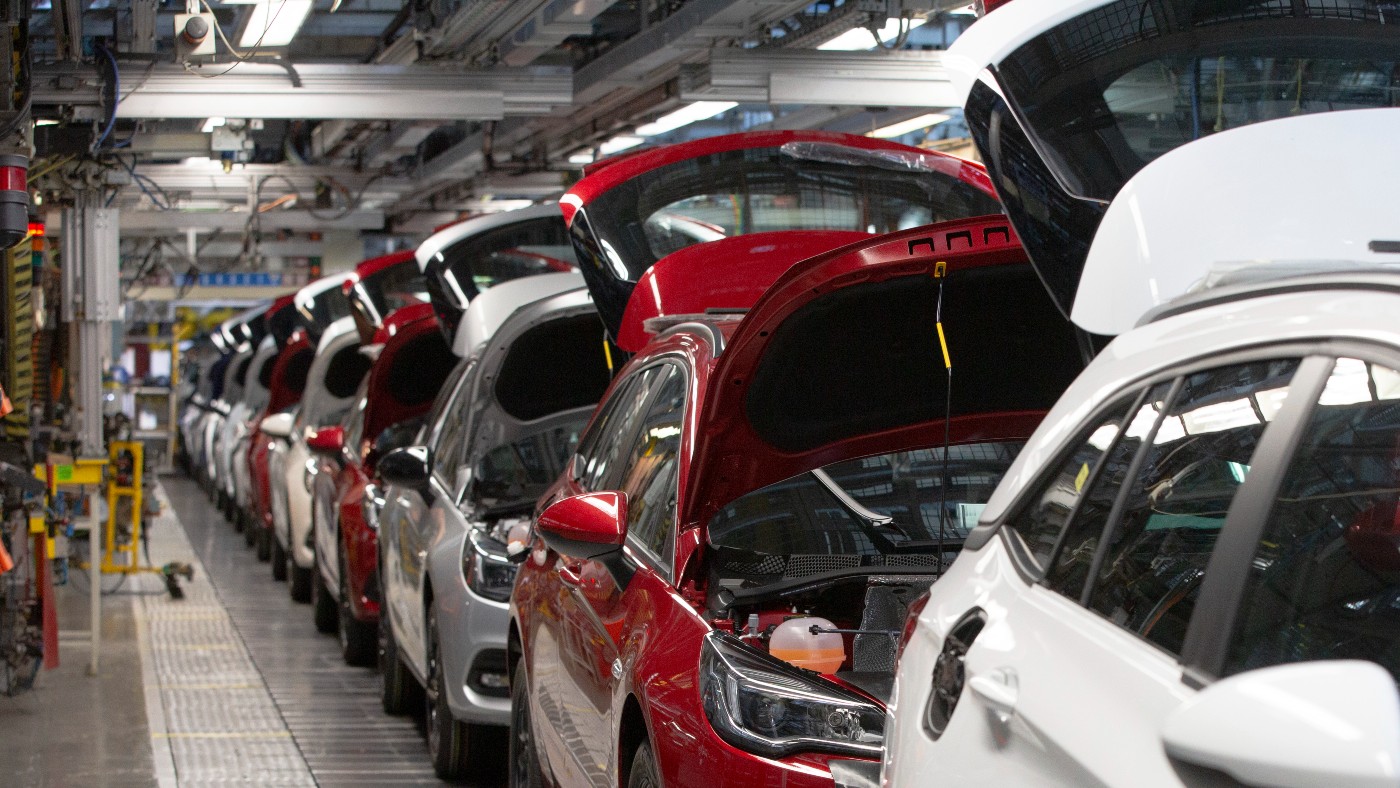Britain’s car industry: heading for a crash?
From 2024, EVs traded between the UK and the EU will need to have 45% of their parts sourced from either region, or they will face 10% tariffs

A free daily email with the biggest news stories of the day – and the best features from TheWeek.com
You are now subscribed
Your newsletter sign-up was successful
Let’s be clear, said Sean O’Grady in The Independent. We will be witnessing, in the coming months and years, “the slow death” of the British car industry – another success story sacrificed on the altar of Brexit.
Honda in Swindon is closing. Nissan in Sunderland is considering its options. Last week, Stellantis, the maker of Vauxhall, Peugeot, Citroën and Fiat cars, stated bluntly that if the cost of making electric vehicles (EVs) in the UK becomes prohibitive, then “operations will close”; its electric vehicle plant in Ellesmere Port in Cheshire is at risk.
Ford and JaguarLand Rover issued similar warnings. Why are they worried? It’s a question of “rules of origin”, a fiddly issue that Boris Johnson somehow forgot to mention when he trumpeted his “zero-tariff” EU trade deal. From 2024, EVs traded between the UK and the EU will need to have 45% of their parts sourced from either region, or they will face 10% tariffs. And since, unfortunately, the UK has to source so many parts from Asia, that threshold is unlikely to be met – particularly because Britain does not have a viable domestic car battery business. The resulting 10% tariffs will make UK-made cars uncompetitive in the crucial European market.
The Week
Escape your echo chamber. Get the facts behind the news, plus analysis from multiple perspectives.

Sign up for The Week's Free Newsletters
From our morning news briefing to a weekly Good News Newsletter, get the best of The Week delivered directly to your inbox.
From our morning news briefing to a weekly Good News Newsletter, get the best of The Week delivered directly to your inbox.
‘Likely to be left behind’
“With wearisome predictability”, Remainers who can’t accept the referendum result blame everything on Brexit, said the Daily Mail. But the blame here doesn’t lie with Johnson’s EU deal. It lies with the failure of successive governments to invest in battery factories, leaving Britain almost entirely reliant on imports. There’s still a hope that the EU might renegotiate the trade deal, said the FT. But the Government will have to be quick: car manufacturers have to plan their complex supply chains many years ahead, and the import rules are due to change in January.
The real concern is that the UK simply does not have a viable industrial strategy. The EU and the US are thinking far ahead about how to build up green manufacturing. The UK looks disturbingly likely to be “left behind”. The fashion now among Brexit supporters is to concede that it’s going badly, said Jonathan Freedland in The Guardian – but to argue, as Nigel Farage did recently, that this is only because “useless” politicians have “mismanaged” it. They sound like deluded Western Marxists who insisted that communism hadn’t failed; it had just never been implemented properly. Seven years on, we ought to be able to face the reality: that “Britain is becoming poorer and falling behind its peers”. But as “the damage caused by Brexit piles up”, its supporters seem ever more inclined to “blame others for not doing it right”.
A free daily email with the biggest news stories of the day – and the best features from TheWeek.com
-
 Political cartoons for February 16
Political cartoons for February 16Cartoons Monday’s political cartoons include President's Day, a valentine from the Epstein files, and more
-
 Regent Hong Kong: a tranquil haven with a prime waterfront spot
Regent Hong Kong: a tranquil haven with a prime waterfront spotThe Week Recommends The trendy hotel recently underwent an extensive two-year revamp
-
 The problem with diagnosing profound autism
The problem with diagnosing profound autismThe Explainer Experts are reconsidering the idea of autism as a spectrum, which could impact diagnoses and policy making for the condition
-
 Currencies: Why Trump wants a weak dollar
Currencies: Why Trump wants a weak dollarFeature The dollar has fallen 12% since Trump took office
-
 Companies are increasingly AI washing
Companies are increasingly AI washingThe explainer Imaginary technology is taking jobs
-
 Elon Musk’s starry mega-merger
Elon Musk’s starry mega-mergerTalking Point SpaceX founder is promising investors a rocket trip to the future – and a sprawling conglomerate to boot
-
 TikTok: New owners, same risks
TikTok: New owners, same risksFeature What are Larry Ellison’s plans for TikTok US?
-
 Will SpaceX, OpenAI and Anthropic make 2026 the year of mega tech listings?
Will SpaceX, OpenAI and Anthropic make 2026 the year of mega tech listings?In Depth SpaceX float may come as soon as this year, and would be the largest IPO in history
-
 Leadership: A conspicuous silence from CEOs
Leadership: A conspicuous silence from CEOsFeature CEOs were more vocal during Trump’s first term
-
 Ryanair/SpaceX: could Musk really buy the airline?
Ryanair/SpaceX: could Musk really buy the airline?Talking Point Irish budget carrier has become embroiled in unlikely feud with the world’s wealthiest man
-
 Powell: The Fed’s last hope?
Powell: The Fed’s last hope?Feature Federal Reserve Chairman Jerome Powell fights back against President Trump's claims